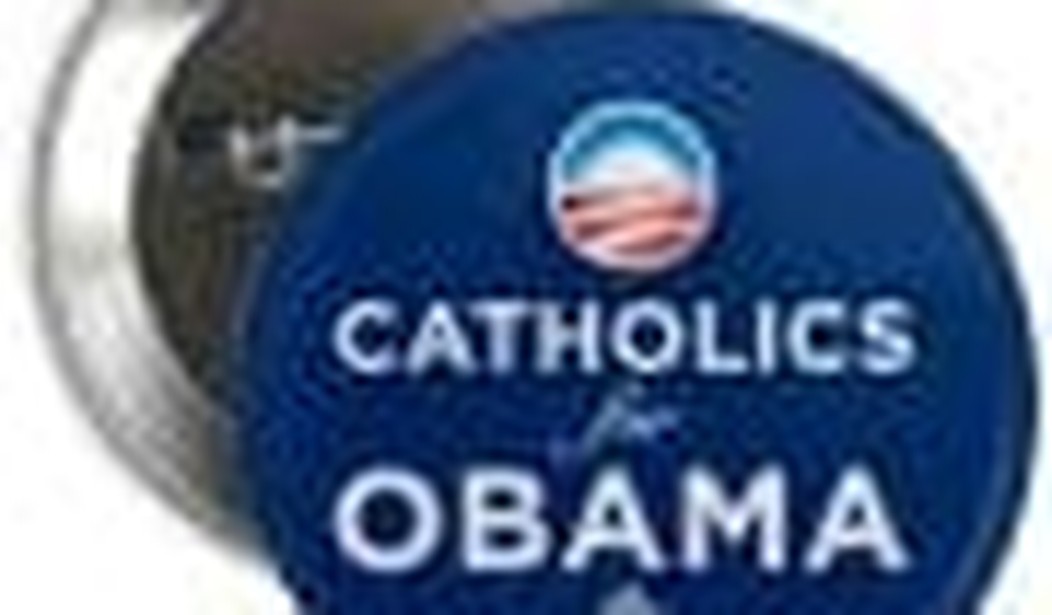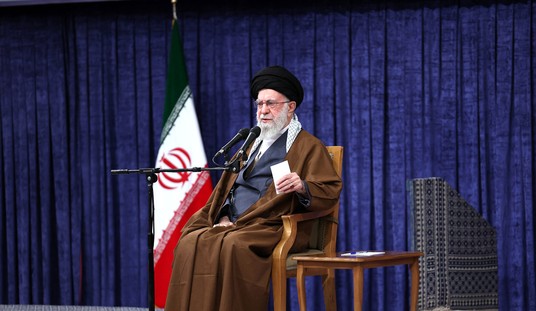The booing and then chants of “Yes, we can!” by graduates of the nation’s premier Catholic university in response to a protester’s shout of “Abortion is murder!” during President Obama’s commencement address sent a chill through me.
The president of Notre Dame rationalized inviting a speaker upholding — and in effect promoting — what the Church defines as murder. On the other hand, Bishop John M. D’Arcy protested the invitation with 70 other bishops and refused to attend the commencement. But his remarks, like a lay group’s open letter to Obama, revealed tunnel vision on the evil represented by his election.
It emanates from the changes in the Church. The change in style from high liturgy to the whiny adolescent voice accompanying the plucking of the guitar string of the new folk mass in the 1960s was accompanied by the change in content, reduced to a one-note protest against abortion. Perhaps that is why Obama received 54% of the Catholic vote.
Obama’s faux hip style would likely appeal to those who go for today’s kumbaya forms of worship, such as the holding of hands during the “Lord’s Prayer” in many masses. Or the priest I heard in Holley, New York, who had come off the altar and into the aisle to talk in a confidential, folksy manner to the congregation who looked like they had just stopped into mass between their other activities that required no more sartorial effort than stepping into a pair of jeans. In the flattering soft tones that Flannery O’Connor would have zinged, he went on about the “Father, Son, and Mother Spirit.” To my horror, he explained this new feminine conception to the approving nods of the congregation’s Eves.
In many homilies, the themes of “social justice” and multiculturalism echo the lessons of the classroom. Rare is the Sunday when a priest does not caution his parishioners about the evils of “prejudice” — directed of course only at the white people who make up the overwhelming majority of the congregation. Like Julian of Flannery O’Connor’s short story “Everything That Rises Must Converge,” they salve their consciences through superficial displays of “tolerance.” In this way, the Church promotes people as groups, not individuals.
And yet the Church expects her young to condemn a leader — who comes from the dark-skinned group they have been taught to uphold — on the basis of one issue: abortion. Is it any wonder then that those at the commencement applauded Obama’s statement that both sides can “join hands in a common effort” on abortion? Why fault 22-year-olds who have grown up in a religious tradition that says very little, if anything, about the increasing power of the state? Does the Church say much about other violations to personal freedom, like the seizure of business, the breaking of contracts, and the breaking of promises about campaign funds and informing the public about legislation? The coming rationing of government health care? The ridicule of those who “cling” to their “religion”?
To the contrary, the Church seems to be in agreement with Obama and his homeland secretary, Janet Napolitano, that entering the country illegally is not a criminal offense. Nor did the Church loudly condemn the Department of Homeland Security memo that claimed Christian faith a characteristic of right-wing extremism. And rather than invoking Aquinas’ theory of “just war,” the Church sided with the leftist peaceniks during the Iraq liberation. And where is the condemnation of Obama’s statist plan that includes, so far, taxing charitable gifts and subsidizing a government youth corps in “community service”?
If, say, a president took the measures that Obama did for abortion, but instead applied them to ensuring the rapid execution of black men on death row, the hue and cry from college students would be overwhelming.
But the ideologue is selective in his outrage over murder and injustice, and can rationalize everything, from denying employment to certain races to the starvation and murder of millions of bourgeois — all for the larger good, by one’s own lights or the lights of his party.
The common denominator of utopian ideologies is the substitution of particular men’s wisdom for God’s wisdom as passed down through the generations. Because the Church condemned such diabolical ideologies, communists murdered priests and nuns. The Church provided assistance to those escaping communist regimes, like my parents.
But rather than providing a firewall of faith against Marxist ideologies, Notre Dame, by its academic offerings, seems to have succumbed. The department of “diversity” gives a class devoted to “gender and peace studies”; the English Department represents postcolonialism, Latino/Latina literature, and cultural studies; and history offers classes focusing on the new trinity of race, class, and gender. Such a capitulation to fifth-column initiatives seems to have also infected Catholic high schools. St. Pius in Atlanta puts on a recommended reading list Nickel and Dimed by Barbara Ehrenreich, known for her pro-abortion stance and communist affiliations. And I have talked to an English teacher at a Catholic high school who unapologetically explained that she did what many of my colleagues do in the secular classroom: promote feminism.
The pro-life position then must come across as an anomaly within the race-class-gender classroom environment.
What resonates more is the black dude who could have been the cool guy teaching the “gender and peace studies” class.
So, is it any wonder that young people put their “hope” in a charismatic political leader? Is it a surprise that college-educated Catholics shouted in cult-like unison a slogan from a Marxist labor movement: “Yes, we can!”?
Back in 1931, Pope Pius XI in an encyclical rebuked a government that had put “out of existence socialism and anti-religious organizations,” but had permitted them to be “readmitted.” The government, charged the pope, “made them even stronger and more dangerous, inasmuch as they are now hidden and also protected by their new uniform.” “We find ourselves,” continued the pontiff, “in the presence of a party, of a regime … which clearly resolves itself into a true and real pagan worship of the state.” Part of this “statolatry,” he accused, involved the attempt “to monopolize completely the young, from their tenderest years up to manhood and womanhood.”
The Church, which back then seemed to be sure of her moral authority, of course, was condemning Mussolini’s fascists.









Join the conversation as a VIP Member